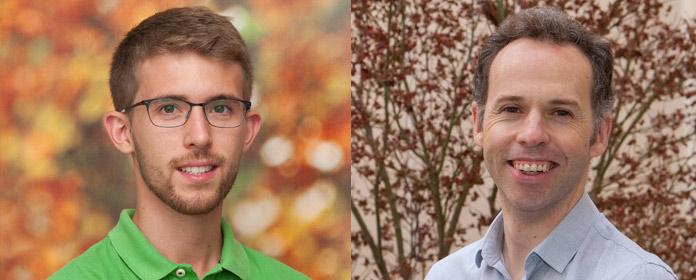Researchers from Education and Psychology and ICS study how the coronavirus crisis affects personal beliefs.
The research is part of Eduardo Camina's doctoral thesis , directed by Francisco Güell and Javier Bernácer, and asks for volunteers to fill in an anonymous questionnaire .

PHOTO: Manuel Castells
Researchers at the University of Navarra are developing a study to learn how personal beliefs can change before and after a crisis, such as the coronavirus pandemic. They are asking for volunteers to fill out a brief anonymousquestionnaire consisting of 12 questions.
This research is framed in the doctoral thesis of Eduardo Camina, PhD student of the School of Education and Psychology and partner of the group 'Mind-brain' of the Institute for Culture and Society (ICS), which deals with belief systems.
According to Javier Bernácer, co-director of thesis and researcher of group 'Mind-brain' of the ICS, this crisis is social and staff. That is to say, not only does the number of victims and those affected have an impact at a global level, but also the fact that we have close people among them. "We think that this crisis can affect both transcendental beliefs and those related to science or interpersonal relationships," he said.
Thus, the team has adapted the research they were carrying out in the doctoral thesis , selecting the 12 most relevant or changing beliefs -which had previously been detected- and have added several questions related to COVID-19. Their intention is to conduct the questionnaire at the beginning and at the end of the crisis in order to learn more about the human being and whether this new status affects the belief system.
Polarization and stereotypesIn the original research , Eduardo Camina sought to detect beliefs based on sentences and ideas and to see how they are structured in the form of network. To do this, 108 people answered a questionnaire where they had to show their agreement or disagreement with 90 propositions. In addition, a series of sociodemographic questions were asked in order to divide the sample into groups: women and men, older or younger than 30, single or married, and left-wing or right-wing sympathizers.
"The preliminary results point to the polarization of society, but also to the absurd need for our beliefs to conform to stereotypes," Bernácer pointed out. Among other relationships, they have been able to verify that those who claim to vote for right-wing parties have more beliefs of transcendental subject and left-wing voters have more beliefs of social progressivism.
The thesis , entitled 'Analysis of networks involved in the configuration of the belief system', is carried out jointly at the ICS and the School of Education and Psychology under the direction of Francisco Güell, coordinator of the group 'Mind-brain', in addition to Bernácer. For the execution of this project, Camina made a research stay at Harvard University (USA) to train in graph theory.
